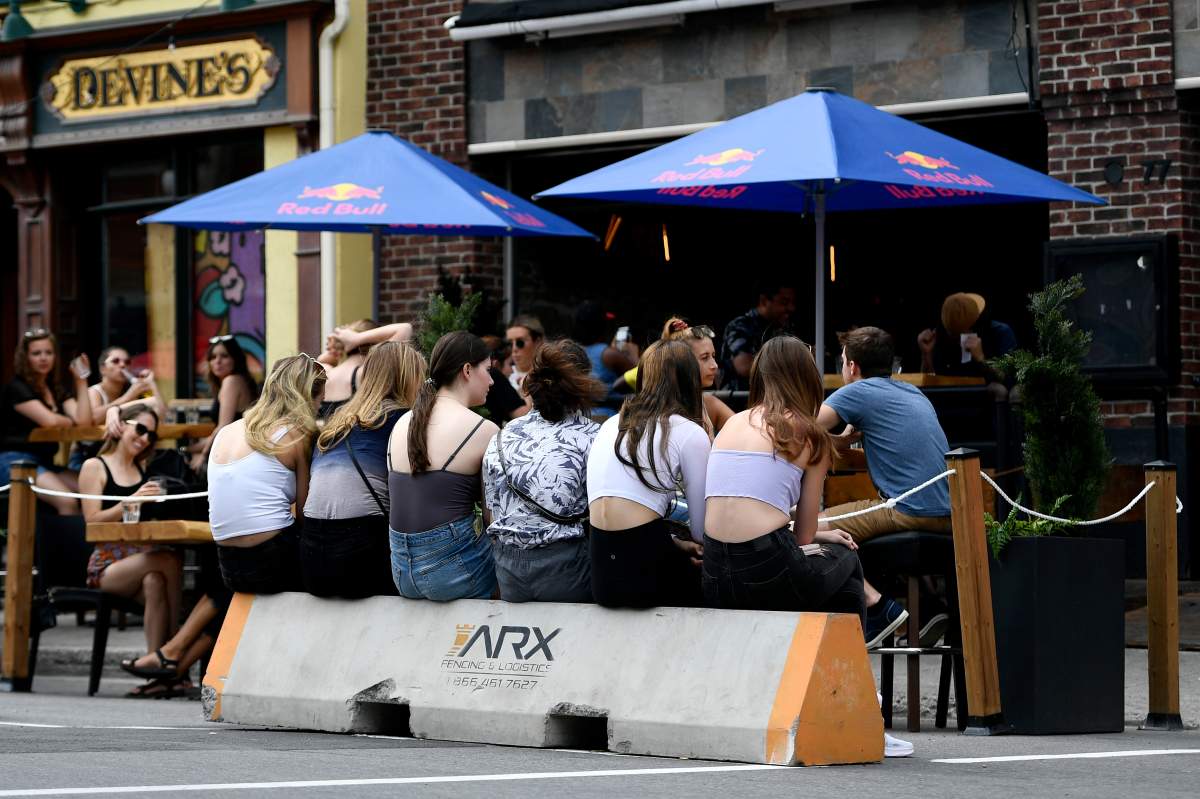The novel coronavirus continues to surge in Ottawa as public health officials trace a spike in youth cases to a “shift” in social behaviour.

Ottawa Public Health (OPH) identified 43 new cases of the virus on Tuesday, raising the total cases of COVID-19 in the city to 2,287.
Ottawa’s latest figures represent more than 20 per cent of all new coronavirus cases added to the provincial database in the past 24 hours, with 203 cases identified in Ontario on Tuesday.
The city’s death toll related to the virus remains unchanged at 263.
OPH’s daily report on the novel coronavirus shows that 25 of Tuesday’s cases are linked to residents under 29 years old, 15 of which are tied to people in their 20s.
OPH also reports that seven people are now in hospital with COVID-19, two of whom are in intensive care.
Provincial data shows there are 157 active cases of COVID-19 in Ottawa, though OPH’s report shows 159 ongoing cases.
The number of institutional outbreaks in Ottawa remains unchanged at six.

Ottawa is in the midst of a surge in coronavirus cases, with double-digit increases in the city for the past four days. The city hasn’t seen single-day jumps of this magnitude since May.

Get weekly health news
Dr. Brent Moloughney, Ottawa’s associate medical officer of health, told members of the media on Tuesday that the city’s spiking cases cannot be directly connected to entering Stage 3 of reopening this past Friday.
Moloughney said the latest cases in Ottawa stretch back to Stage 2, though they’re not primarily connected to residents dining on patios or other activities permitted under the second phase of Ontario’s reopening strategies.
Nor are they “very much related” to Ottawa’s recent targeted testing strategies in Heron Gate or east-end neighbourhoods, he said.
Moloughney said the rise in cases can be traced back to a “shift” in social behaviour, specifically in youth attending indoor parties without physical distancing or people going to work when sick.
He said it was too “early” to tell the extent of infections each party is responsible for, as OPH is still following up with identified cases and contact tracing to find other potential infections.
What’s clear, Moloughney said, was that better messaging needs to be directed at youth in Ottawa to take the virus more seriously.
“It’s not just about us. It’s about protecting our loved ones and others in the community who are more vulnerable,” he said Tuesday.
On Tuesday, Ontario Premier Doug Ford also pleaded with the province’s youth to socialize more responsibly.

“The vast majority, 98 per cent of all these young folks, are following protocol procedures and a couple percent are going a little hog wild,” Ford said during his own coronavirus briefing.
“Guys, you got to rein it in. Simple as that.”
Moloughney said OPH has heard that, “anecdotally,” people have been “a little confused” about the Ontario government’s social circle concept, which sees groups of up to 10 people form exclusive bubbles where physical distancing is not required.
Ultimately, residents have begun overlapping their social circles or changing who is a member of a circle at a given time, defeating the purpose of the bubbles and instead propagating the spread of the virus.
“In some cases, the concept of ‘exclusivity’ … hasn’t quite gotten through to everyone,” Moloughney said.
It’s not OPH’s call whether or not to go back to a previous stage of reopening, Moloughney reaffirmed Tuesday, but the public health unit is able to provide feedback to the province on whether restrictions need to be reapplied.
He said that it was always expected Ottawa’s case numbers would rise as the city progressed through Ontario’s reopening stages, but what will determine next steps is the city’s capacity to snuff out infection hotspots and get flare-ups of the virus under control.









Comments